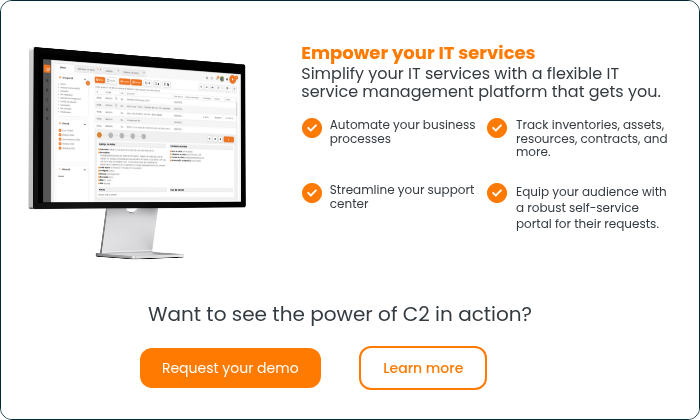The IT manager is a multidisciplinary artist who is at the center of the company. A virtuoso of technology with a notable knack for communication, they demonstrate a set of pervasive qualities and skills in trade or management.
Wearing many hats, IT managers use many methods and tools that can help them perform their daily tasks and move at the pace of the company’s activities. The real art behind each of their skills is reading the complex organizational structure with which they operate while using their know-how for task optimization and time management.
The IT manager: A true conductor
The IT manager acts as a conductor: They are responsible for coordinating the interaction between different departments that relate to their own. A solid understanding and good relations between professionals that surround them are required to get an overall view of the current issues and challenges they encounter on a daily basis. The analogy made with the conductor is of the essence here. Indeed, the IT manager’s job is to bring consistency among their collaborators and direct actions according to the company’s strategic vision, just like a conductor who is responsible for bringing consistency between musicians and guiding the performance of musical works based on the chosen repertoire. This holistic understanding is thus a prerequisite for saving time and making the right moves to achieve their goals.
An architect of the computer system
Aside from acting as a conductor and optimizing their time, IT managers must also play the role of an architect. Indeed, just like an architect who is responsible for thoroughly arranging volume and space and for leading construction, IT managers must use their vast knowledge to analyze and interpret performance reports and implement the resulting actions. Effective monitoring of performance reports and appropriate dashboards is required. Service management tools can help IT managers in this regard, as they allow the production of reports and dashboards related to established performance indicators. Not only does this provide an optimal overview of the company’s activities, but it also provides efficiency in the decision-making process.
Versatility and prioritization of tasks
Another way for IT department managers to better manage their time is to use process automation. IT managers' working reality is similar to that of a juggler who has to deal with a wide variety of tasks throughout the day, moving from one task to another with a high level of dexterity. Furthermore, process automation helps prioritize tasks and measure their speed of execution while demonstrating transparency throughout their implementation. The benefit of using this method for optimizing managers’ time is the ability to focus on the priority to be assigned to each task to ensure performance and flexibility, which are important elements to consider by IT managers.
Communicative leadership
A company is just like a theater company in the sense that every individual has a role to play and they all feed each other lines. What could be more natural than communicating effectively to save time and avoid misunderstandings, making sure everyone knows all the ins and outs of organizational issues as well as their tasks? Therefore, to optimize their time, IT managers must also possess a great team spirit and trust their employees enough to delegate tasks to them. The temptation to manage it all is great, as the tasks accumulate but are not alike. Thus, the best way to resist this temptation is to help the members of their team balance and distribute the forces more effectively. Thanks to ITSM software solutions that are available on the market, service providers and their IT departments are able to share tasks more easily and allow managers to delegate tasks while keeping an overall view of the pace at which they are carried out.
In-depth knowledge
Computer science in a business deals with important concepts such as security, improvement and simplification of procedures, new ICTs, etc. Keeping up to date with all of these concepts or other concepts related to their projects is crucial for IT professionals, particularly since these notions tend to evolve rapidly. Just like the philosopher who takes a contemporary look at a set of concepts that feed his thoughts, IT managers optimize the present moment through solid knowledge of the concepts they work with. By performing updates on a regular basis, they are able to get a clear idea of existing tools and available solutions and therefore make informed decisions as part of their duties.






